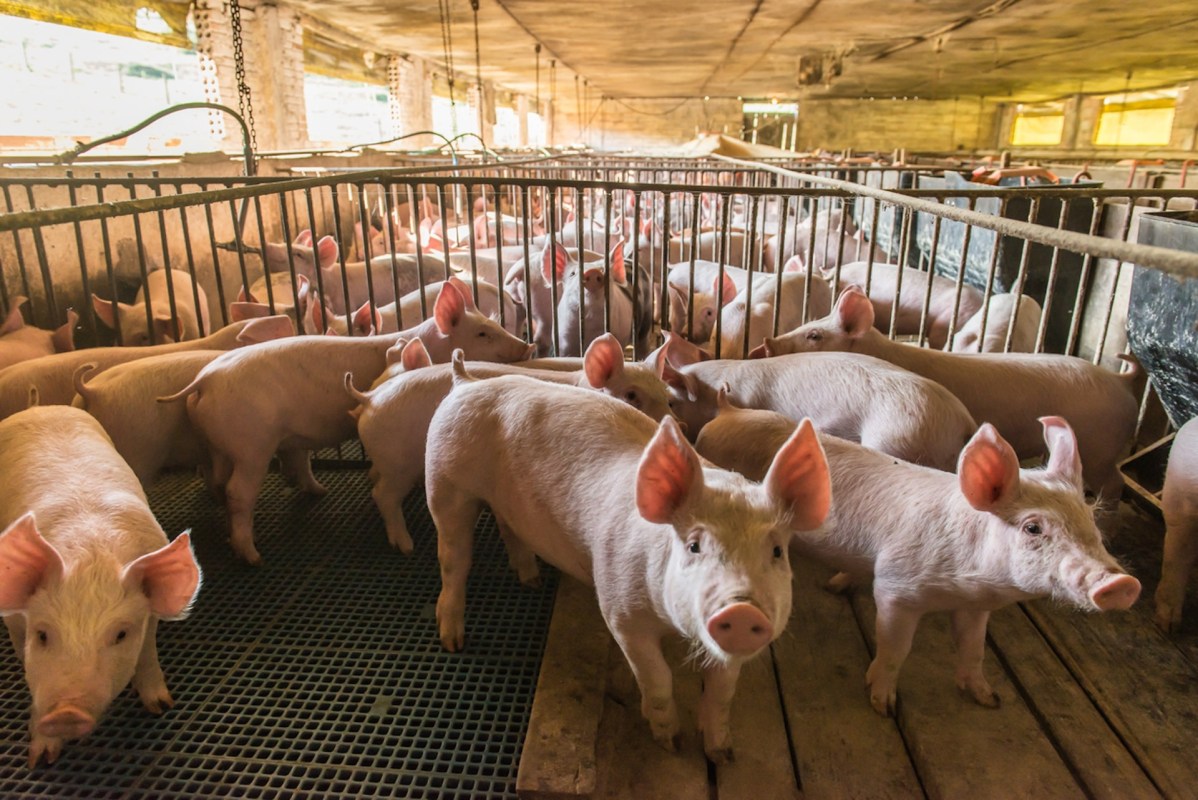A documentary about North Carolina's hog industry challenges viewers to look beyond the bacon on their breakfast plates. But they might not like what they see.
"The Smell of Money," directed by award-winning filmmaker Shawn Bannon, spotlights allegations of manure spraying, foul smells, water contamination, barns crowded with swine, and the plight of Elsie Herring as it uncovers an unsavory part of our food system.
"When a corporate hog farm moves in — uninvited — on land her grandfather had purchased after claiming his freedom from slavery, Elsie Herring decides to fight back," a tease of the documentary stated. The impact on communities of color is a focal point.
"'The Smell of Money' is hard to take your eyes off," Plant Based News wrote about the film.
"Our goal for the film has always been to create an impact and inspire change," producer Jamie Berger told Plant Based News.
But it's a message at odds with one offered by the North Carolina Pork Council. The agency maintains the farms are safe for people, animals, and the planet while generating 44,000 jobs.
What's happening?
The federal government estimates that 7.8 million pigs are being raised in North Carolina. The industry produces about $10 billion in revenue for the state each year, per the Pork Council.
Unfortunately, the waste is accumulating as fast as the revenue.
A 2020 blog from Duke University, a project for the spring 2019 environmental policy course, noted the smelly part of the industry: 10 billion gallons of excrement.
"This excess of waste causes, predictably, massive problems both for the environment, and the people in the surrounding area," Finn Doherty wrote.
Why is it important?
The hog industry has international ties and powerful interests. China's WH Group acquired Virginia-based Smithfield Foods in 2013 for $4.7 billion in an effort to gain access to U.S. pork products for export to China, Reuters reported.
A Vox story detailed lobbying between the powerful hog industry, politicians, and policymakers to ensure favorable conditions for business. And all the pork doesn't come without smelly waste lagoons. A Vox photo showed a Smithfield hog farm complete with a wastewater pond, which isn't exactly an ideal neighbor.
"What makes you think you have a right to set up a hog farm and destroy my way of life?" a documentary participant said in a preview.
Folks living near the massive meat facilities report nausea, anxiety, breathing problems, and environmental racism, as Vox reported.
For the industry's part, the pork council claims the farmers leverage expertise from scientists, government agencies, and others to operate safely, reducing "the environmental impact of … farms to protect public health."
Yet Don Webb, a former hog farmer, is now in the other camp.
"A good American won't intentionally stink up another American's home," he said in the film, per Plant Based News.
How to help
Education is perhaps the best tool for savvy food buyers. There are ways to hold large companies accountable for their operational impact on people and the environment.
Consider buying your meat straight from a local farmer who raises animals in a pasture. North Carolina State University has a portal, aptly dubbed MeatSuite, that allows users to search for protein sources based on location, species, and farming practices.
Another option is to try meat alternatives, including delicious vegan recipes for the barbecue.
Join our free newsletter for cool news and actionable info that makes it easy to help yourself while helping the planet.









